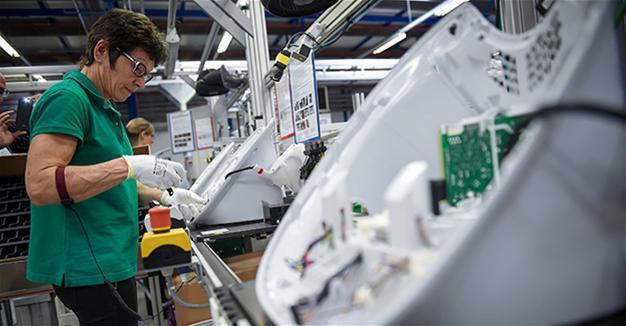Europe’s recovery strengthens, unemployment at 8-year low
BRUSSELS - Agence France-Presse
 Europe’s economic recovery is strengthening with unemployment in the eurozone dropping in June to its lowest since February 2009, according to official figures released on July 31.
Europe’s economic recovery is strengthening with unemployment in the eurozone dropping in June to its lowest since February 2009, according to official figures released on July 31.The jobless rate of 9.1 percent was better than predicted by analysts and will boost confidence that the 19-nation single currency area’s pick-up is gathering steam after the financial crisis.
Inflation in July however remained well below the European Central Bank’s target, meaning that it is likely to carry on for now with its massive economic stimulus policy and low interest rates.
The inflation rate in particular was “very subdued”, said Jennifer McKeown of Capital Economics.
“While June’s unemployment data paint a positive picture of the eurozone labor market, July’s (inflation) release confirms that this strength has yet to generate inflationary pressure,” McKeown said.
The figures come a week after the IMF said the eurozone economic recovery was broad and strengthening, but warned that low inflation, fragile banks and Brexit remained significant risks.
The Eurostat statistics agency said unemployment fell to 9.1 percent in June compared to a revised 9.2 percent in May.
That was slightly better than the 9.2 percent predicted by analysts surveyed for data company Factset.
“This is the lowest rate recorded in the euro area since February 2009,” Eurostat said in a statement, when the European economy was still in the doldrums after the global financial crisis.
The highest unemployment rates were in struggling Greece, at 21.7 percent, and Spain at 17.1 percent.
Unemployment across the 28-nation EU was meanwhile stable at 7.7 percent in June, the lowest rate for the bloc since December 2008.
Eurozone inflation meanwhile held at 1.3 percent in July, matching estimates by Factset.
Inflation is a key indicator of underlying consumer demand.
The ECB has a target rate of close to, but just below 2 percent, with the aim of ensuring a modest but sustained increase in prices, which are a sign of a healthy economy.
To achieve this, the ECB has set interest rates at historic lows and poured hundreds of billions of cheap euros into the banking system to stimulate activity.
Finally, after years of trying, the economy has shown signs of a modest but broad pick-up this year, leading to calls on ECB chief Mario Draghi to turn off the easy credit tap.
Draghi last week played down suggestions the institution might soon wind down the stimulus, saying policymakers must be “persistent and patient” faced with low inflation.
Observers are eyeing the bank closely for signs it may soon end its monthly bond purchases of 60 billion euros ($69 billion) per month.
Just three monetary policy meetings remain before December, when the “quantitative easing” (QE) purchases are presently set to expire.
















